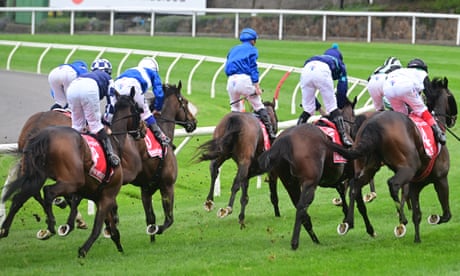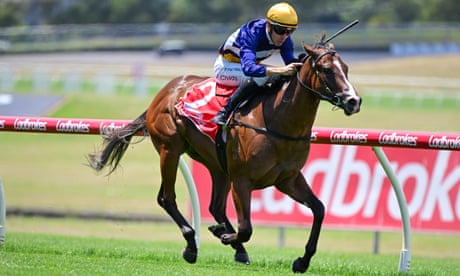Extract from The Guardian
As UK Premier League clubs agree to ban front-of-shirt betting ads from 2026, David Pocock says we must ensure children are not being exposed to ads.
Fri 14 Apr 2023 18.52 AEST
Last modified on Fri 14 Apr 2023 19.00 AESTUK Premier League clubs have agreed to ban match-day front-of-shirt sponsorship deals with gambling companies from the summer of 2026. The move has prompted mixed reactions, with some viewing it as a compromise that may allow other gambling ads to continue.
Many NRL clubs still have gambling sponsors on their jerseys including the Manly Sea Eagles, which has the PointsBet logo in bold font across its front. Tabcorp sponsors the Queensland Cowboys jersey and has a small logo on the ACT Brumbies rugby union shirt. Sydney-based BlueBet appears on the Dolphins jersey while PalmerBet sponsors the Newcastle Knights shirt.
Tabcorp’s chief executive, Adam Rytenskild, recently told a parliamentary inquiry the company would be happy to stop this sponsorship if it was banned for all bookmakers at once.
“The difficulty for us as an operator, especially being the operator that has been here for a long time and needing to adapt to all of this competition that’s in the market, is that if it’s not enforced consistently and across the board then we have to participate or wither on the vine and not exist any more,” Rytenskild said.
Pocock, a former Wallaby captain turned ACT senator, said Australia has the highest per capita gambling losses in the world and “three-quarters of children aged 8-16 who watch sport think betting on sport is normal”.
“Clearly, this is an issue people are concerned about and we must ensure we are protecting children from gambling advertising,” he said. “We have much work to do to ensure that children are not being exposed to gambling advertising.”
Last year, betting giant Etain announced it would no longer sponsor the jerseys of professional sports teams, citing community concern. Entain runs the Ladbrokes and Neds brands, which previously featured on jerseys worn by the Brisbane Broncos and Canterbury-Bankstown Bulldogs.
Carol Bennett, chief executive of the Alliance for Gambling Reform, said state or federal governments should ban gambling logos on jerseys but did not expect it to happen.
“If Australian governments were serious about reducing gambling harm they would also be pressuring some of our major sporting leagues to restrict sponsorship, but given the close relationship between gambling companies and governments in Australia, such a move is very unlikely,” Bennet said.
Bennett said the UK deal was “a great first step” given the level of community concern but stressed much stronger action was required.
Prof Samantha Thomas, a gambling expert at Deakin University, said voluntary initiatives were rarely enough to limit exposure to wagering ads.
“They can also do more harm than good if governments frame this as a step forward and subsequently delay regulation that would protect public health,” Thomas said.
“Sporting codes and the gambling industry cannot be left to decide what types of gambling marketing they are prepared to remove and what not to remove.”


No comments:
Post a Comment